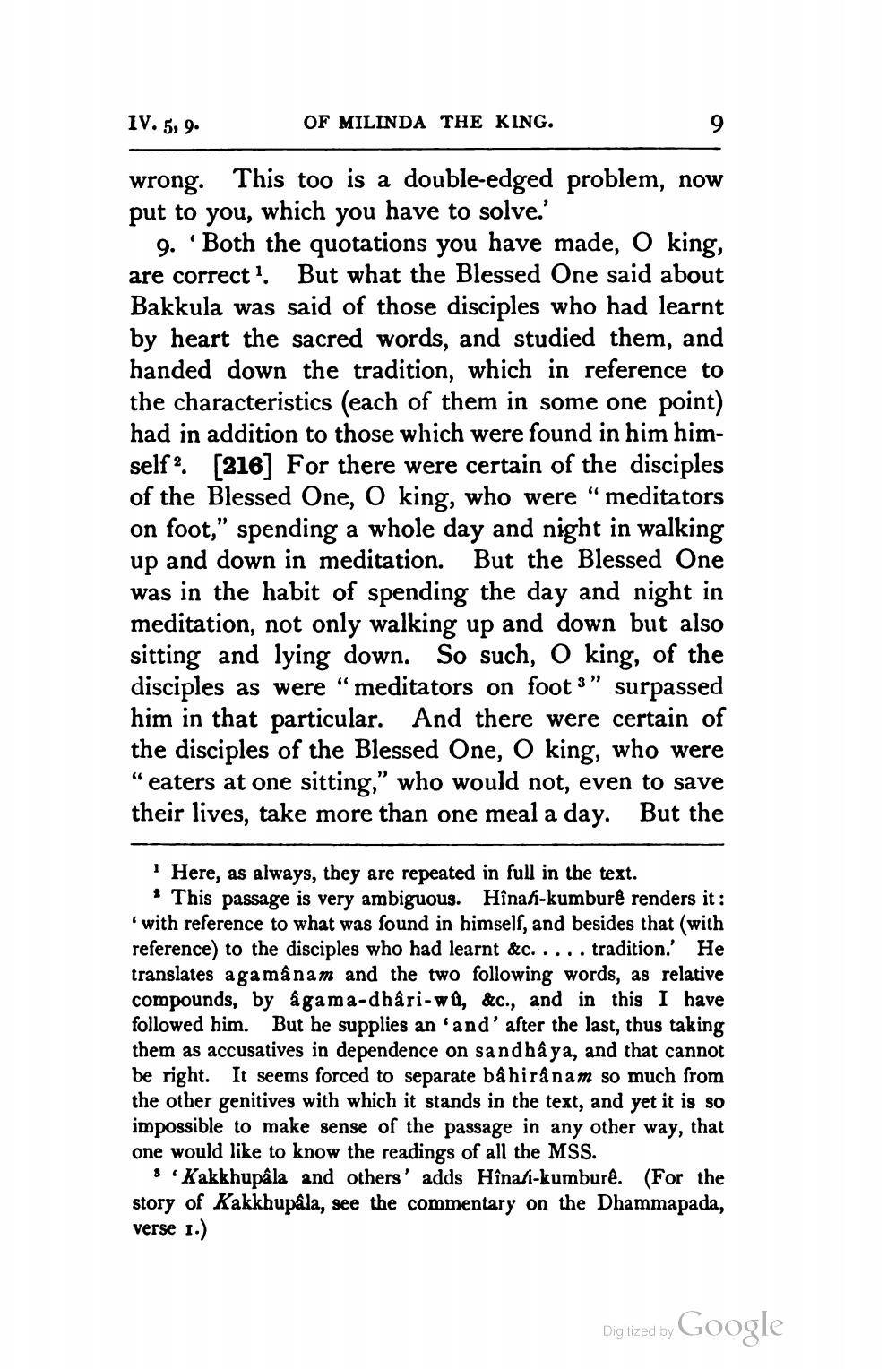________________
IV. 5, 9.
OF MILINDA THE KING.
wrong. This too is a double-edged problem, now put to you, which you have to solve.'
9. Both the quotations you have made, O king, are correct. But what the Blessed One said about Bakkula was said of those disciples who had learnt by heart the sacred words, and studied them, and handed down the tradition, which in reference to the characteristics (each of them in some one point) had in addition to those which were found in him himself?. [216] For there were certain of the disciples of the Blessed One, O king, who were “meditators on foot," spending a whole day and night in walking up and down in meditation. But the Blessed One was in the habit of spending the day and night in meditation, not only walking up and down but also sitting and lying down. So such, o king, of the disciples as were "meditators on foot 3” surpassed him in that particular. And there were certain of the disciples of the Blessed One, O king, who were "eaters at one sitting," who would not, even to save their lives, take more than one meal a day. But the
Here, as always, they are repeated in full in the text. . This passage is very ambiguous. Hinafi-kumburê renders it: with reference to what was found in himself, and besides that with reference) to the disciples who had learnt &c. . . . . tradition. He translates agamânam and the two following words, as relative compounds, by âgama-dhâri-wa, &c., and in this I have followed him. But he supplies an 'and' after the last, thus taking them as accusatives in dependence on sandhầya, and that cannot be right. It seems forced to separate bâhiranam so much from the other genitives with which it stands in the text, and yet it is so impossible to make sense of the passage in any other way, that one would like to know the readings of all the MSS.
3. Kakkhupâla and others' adds Hînaf-kumburê. (For the story of Kakkhupala, see the commentary on the Dhammapada, verse 1.)
Digitized by Google




